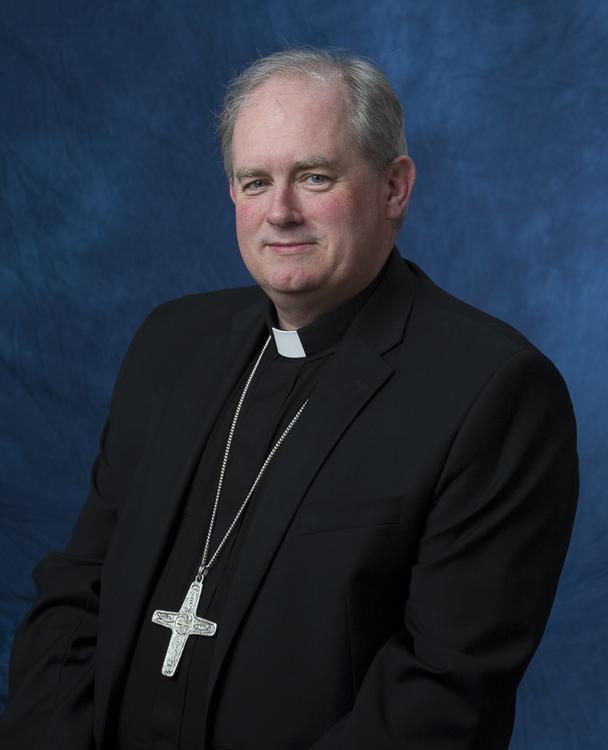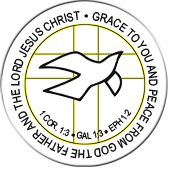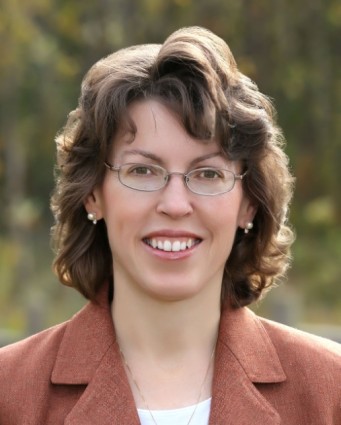Bishop Peter Smith
Vancouver Conference 2017
By Richard Dunstan
 The Holy Spirit has been adapting to the needs of the situation since the creation of the world, says Bishop Peter Smith, and we must be ready for whatever He’s planning to do next.
The Holy Spirit has been adapting to the needs of the situation since the creation of the world, says Bishop Peter Smith, and we must be ready for whatever He’s planning to do next.
Bishop Smith, auxiliary bishop of Portland, Oregon, was featured speaker at the annual Vancouver Catholic Charismatic Conference in September at Broadway Church, along with Bible scholar Mary Healy.
Bishop Smith was ordained to the priesthood in 2001 and made a bishop in 2014. He is archdiocesan liaison to the Catholic charismatic renewal and a member of the Brotherhood of the People of Praise. But he said he would still be living in his native South Africa, where he was trained as a lawyer, if he hadn’t been baptized in the Holy Spirit.
He said different groups of people require different approaches, even in secular life—a speech to students is not going to be the same as a speech to business people—and the requirements of Christian witness change with each generation.
“The Holy Spirit adjusts to what He has to work with, and what’s going on in the culture and the situation,” he said. “We need to ask, ‘what opens the hearts of the people around us?’”
But at the same time, he said, we must never lose sight of what is essential in our message. First, proclaiming Jesus and a life-changing encounter with Him; “it’s one thing to know about Jesus, but when you encounter Him, it’s a whole different thing.
And second, baptism in the Holy Spirit. We can move into other ministries, “but we can never lose sight of that foundation.”
Bishop Smith said that the Holy Spirit makes it possible to be, not only a servant of Jesus, but His friend (see John 15:11-17). He said many wish to be good servants of the Lord, but do not realize that they can also have friendship with Him. He said we must be like Joshua – “as for me and my household, we will serve the Lord” (Joshua 24:15)—but we must also be to Jesus as Ruth was to Naomi—“wherever you go, I will go” (Ruth 1:16)—and ultimately like the apostle John, who followed Jesus to the foot of the Cross (John 19:26).
The bishop traced the action of the Holy Spirit through the Old and New Testaments, from the presence of the Spirit of God over the waters of creation (Genesis 1:2) through the preaching of the apostles in the book of Acts; the courage of the early Christian martyrs, the rise of the desert fathers when many Christians had become lukewarm after Christianity became the official religion of the Roman empire; the formation of religious orders like the Franciscans and the Jesuits to meet the challenges of the 13th and 16th centuries; and the coming of the charismatic renewal in the 20th century.
He said new movements in the Church have always had three ingredients: a new sort of life-changing encounter with God; the formation of a fellowship among those who have had that experience; and an outreach to the larger Church and the world by that fellowship, based on that experience.
Mary Healy
Vancouver Conference 2017
by Richard Dunstan
How many disciples did Jesus send out to heal the sick, expel demons, and preach the kingdom of God?
Seventy.
Including you and me.
The 70 disciples Jesus sends out on the road in chapter 10 of Luke’s gospel (some translations read 72) aren’t special people the 12 apostles, says Dr. Mary Healy. They’re just followers of Jesus like us. And we should be doing the same things they did, with the same spiritual gifts He gave them.
“The Lord’s plan was never to have just a few superstars have those gifts,” she told the Vancouver Catholic Charismatic Conference in September.
Healy, a leading Catholic Bible scholar and chair of the doctrinal commission of International Catholic Charismatic Renewal Services, was featured speaker at the conference, along with Bishop Peter Smith, auxiliary bishop of Portland, Oregon. About 900 attended the conference, held at Broadway Church.
Healy said the Catholic Charismatic Renewal, which celebrates its 50th anniversary this year, is “restoring the normal Christian life” by bringing the gifts of the Holy Spirit to the forefront of Catholicism. “It’s returning the Church to what she is.”
Not everyone needs to be a part of the charismatic movement as such, she said, but everyone in the Church needs to be baptized in the Holy Spirit.
Why? Because that’s how Jesus worked, and that’s how we have to work. Luke’s Gospel makes it clear that Jesus, though God, worked as a man, in the power of the Spirit, for example at the beginning of His ministry in chapter 4, when he returns to Galilee “in the power of the Spirit” (verse 14) and announces in the synagogue at Nazareth, “The Spirit of the Lord is upon Me, because He has anointed Me to bring glad tidings to the poor. He has sent Me to proclaim liberty to captives, and recovery of sight to the blind, to let the oppressed go free, and to proclaim a year acceptable to the Lord” (verse 18).
“We, baptized in Him, receive the same Holy Spirit He did,” Healy said. “The Holy Spirit is the foundation for everything He did in His ministry,” and our program should be the same as the one He announced for Himself in the synagogue.
Healy said that for much of the past 50 years, charismatic conferences have tended to feature speakers with extraordinary gifts, and everybody else has come to receive from those people. But in the next 50 years, she said, all charismatics should be practicing those gifts. She noted that in Luke 10, Jesus doesn’t tell the disciples to pray for healing—he tells them to heal.
What’s more, she said, although Jesus was clearly a joyful person, he is only actually described as rejoicing once in the entire Bible. It’s in Luke 10, when those 70 disciples come back reporting that even the demons are subject to them. In their work, He has seen “Satan falling like lightning from the sky” (verse 18).
“Satan is losing his grip through you,” Healy said. “The reason Satan keeps us in fear is that he’s terrified of us.” Jesus promises us that nothing will hurt us (verse 19) and that our names are written in heaven (verse 20).
Healy gave seven keys to walking through our lives in the supernatural power of the Spirit, like the 70 disciples and like the apostles in the book of Acts:
Be filled with the Holy Spirit. If you’ve already been baptized in the Spirit, keep being filled. When John the Baptist promises that Jesus will baptize His followers in the Holy Spirit, the word “baptize” has connotations of immersion, soaking, even pickling. “John says He’s going to pickle you in the Holy Spirit,” she said. “Do you want to taste like the Holy Spirit? You need to stand closer to Him.”
Maintain intimacy with Jesus. The closer we stay to Him, the more the Holy Spirit will work through us. We need to spend time with Jesus in the sacraments, in scripture, in prayer and in worship.
Get God’s heart for the lost. “He gives us power to do the things that are on His heart,” she said. “God wants everyone to be freed from the spiritual orphanhood that comes from not knowing Him.” We are surrounded by spiritual orphans who are not in condition for eternal life, and “when we have a heart for the lost sheep, we get over our Catholic reticence and get bold about speaking to them about Jesus.” Then we will find that wonders follow, “the divine audio-visual aids to convince people of the truth of the message.”
Ask, seek, knock. On a large scale. St. Teresa of Avila said “when you ask great things of God, you give Him a compliment.” And don’t let false humility stop you. “None of us is worthy—get over it.”
Do whatever He tells you—the advice we get (John 2:5) from the Blessed Virgin, the person who knew Jesus best. We must be obedient to Jesus.
Step out in faith. The Protestant preacher John Wimber said “faith” is spelled R-I-S-K. We shouldn’t do anything harmful or dangerous, but we should be willing to risk looking foolish. And if your faith is small, follow it anyhow. “If you want your faith to grow, step out in the faith you have now.”
Take it out. The Church should not be turned in on itself. “It’s time to bring the news of our glorious Lord out into the streets.”

